On National Girl Child Day, a powerful and insightful webinar was held, shedding light on the importance of gender equality and the challenges faced by girls in society. The session featured eminent speakers who brought attention to the multifaceted issues girls face, including health inequalities, social norms, and the critical role of family and community in empowering them.
The webinar was moderated by Manmohan Singh, Co-Founder & CEO, Aspirational Bharat Collaborative. He began by reflecting on the changes needed to break stereotypes, emphasizing that the journey starts at home and within the community. He highlighted the importance of celebrating progress made so far and the role everyone has in continuing that change. For #BuildingBharat he emphasized the significance of enabling women to live their dreams and that such celebrations serves as reminder of our responsibility to support and empower girls.
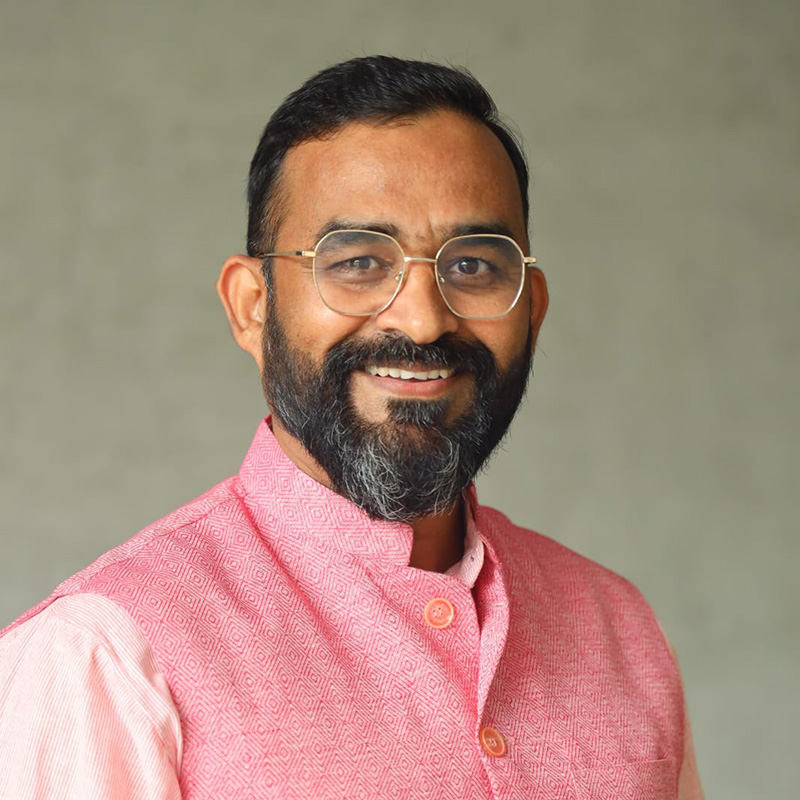
"I will not become a barrier to someone else’s growth. I will take action to support the girls around me and make life better for myself and for those around me.”
Manmohan Singh, Co-Founder & CEO, Aspirational Bharat Collaborative
He shared personal insights from his village in Giridih, Jharkhand, where the ingrained perception about education is that it doesn’t guarantee employment. He also emphasised that despite this perception, government initiatives like Beti Bachao, Beti Padhao has raised awareness and encouraged families to educate daughters in his district.
The event invoked strong emotions through the three young girls—Alisha, Preeti, and Pahi—who shared their powerful journeys of overcoming challenges. Alisha, age 16, from Koraput District showed her determination to pursue education despite family expectations, Preeti, age 17 from Dhaulpur district exhibited her resilience in convincing her father to let her study, and Pahi, age 17 from Dhubri district showed her passion for justice. All these young women highlighted the strength, ambition, and hope that drive young girls from rural India to break barriers and follow their dreams. Their stories motivated the panellists and audience alike and was a great start for the enriching discussion on girls’ education and empowerment.
Basanti Panna’s Words of Strength: 'Ladho Padhai Karne Ko, Padho Samaj Badalne Ko'
Basanti Panna, Mukhiya, Nawadih, Chatra Dist, Jharkhand, shared her inspiring story of resilience and empowerment. Raised in a household where education was denied to her, she overcame immense challenges at home. Despite hardships, Basanti continued her relentless effort by selling firewood to fund her books and uniform. She completed her studies with the support of her principal and later worked as a labour to support her family.
Her struggles fueled her determination to ensure that no other child, especially girls, faced the same obstacles she did. Having witnessed firsthand the impact of limited access to education, she resolved to work towards creating equal opportunities for all.
Leveraging her role as a Mukhiya, Basanti has played a crucial role in her panchayat in advocating for gender equality. Initially, where only girls were enrolled in residential schools, she worked to include boys recognizing that orphaned and poor boys were also at risk of dropping out. She has promoted equal education for both genders, encouraging open discussion between boys and girls to foster mutual support.
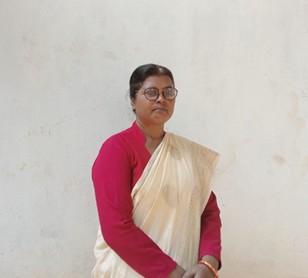
"Ladho Padhai karne ko, Padho samaj badalne ko... Bacchiyon ka Pratibha Chamakne do, Sacchi Muskaan Bikharne Do" (Study to change society)
Basanti Panna, Mukhiya, Nawadih, Chatra Dist, Jharkhand
One of Basanti’s significant achievements has been breaking down the barriers preventing girls over 18 from participating in village council meetings. She emphasized the importance of including them in decision-making processes.
Through her tireless work, Basanti has helped create a society where both girls and boys are seen as equals, working together for the progress of their communities. She has started schools that provide life training and advocates for women’s financial independence through SHG (Self-Help Group) initiatives.
Basanti's journey continues to inspire others to break societal norms, fight for their rights, and lead with courage.
Nayana's Vision for Breaking Gender Stereotypes and Supporting Girls' Aspirations
Nayana Chowdhury, CEO, Breakthrough Trust, comes from a background where women are still constrained by stereotypes. She envisions a world where women aspiring to achieve big dreams are not seen as exceptions, but as the norm. She is a product of India’s free education system and therefore champions the cause of accessible education for all, particularly girls.
Reflecting on her experience, Nayana emphasizes the importance of nurturing big dreams in girls, especially in rural areas like Uttar Pradesh, where many are unsure of their own potential. She believes that girls should be encouraged to pursue a wide range of interests, free from societal gender expectations that dictate their roles. Her efforts focus on empowering girls by showing them possibilities beyond traditional roles, supporting their dreams, and creating an environment where they are not limited by rigid gender norms. She advocates for creating an inclusive environment where boys and girls work together, breaking down barriers that perpetuate inequality and enabling both genders to thrive.
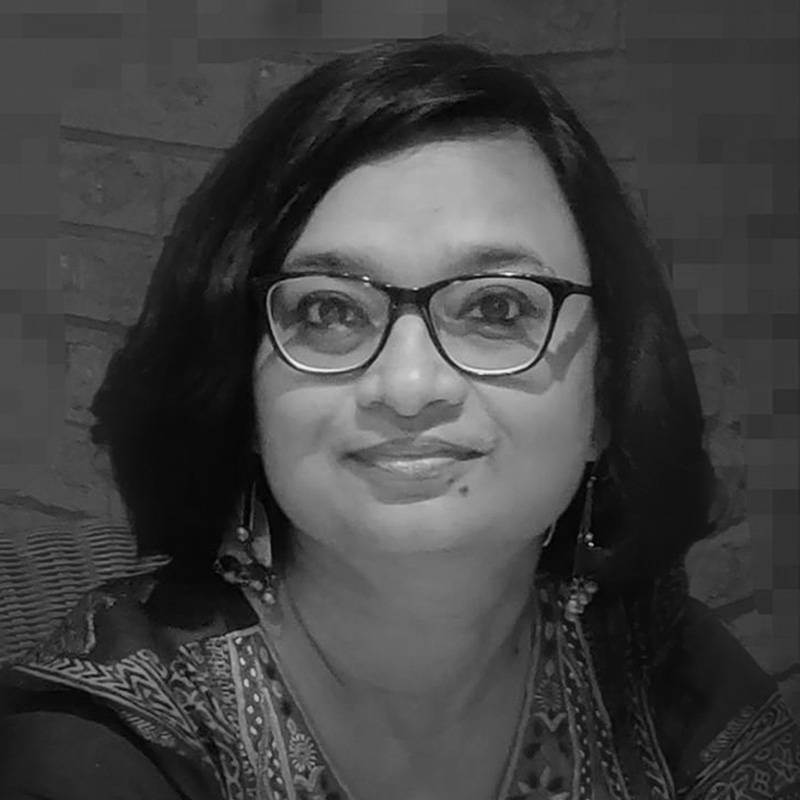
"Society constantly tells girls what they can’t do. But I always feel this needs to be flipped. Why not channel our energy and support into what girls say they want to do? We don’t need to create dreams for them—they already have dreams. All we need to do is pour our energy into supporting them."
Nayana Chowdhury, CEO, Breakthrough Trust
Through her work, Nayana aims to build a society where girls' aspirations are not just supported but celebrated, ensuring that they have the confidence and resources to reach their full potential.
Tapan's Vision for Education and Skill Development
Dr. Tapan Gope, Deputy Project Director, GIZ India discussed about the work in Chhattisgarh’s Bastar region where the focus is on system strengthening and skill development in tribal communities, particularly in areas impacted by conflict. His experience with the European Commission State Partnership Program highlighted the challenges of education in these regions, especially for girls. Despite these hurdles, Tapan observed that many girls had big dreams of becoming engineers or astronauts, despite limited resources.
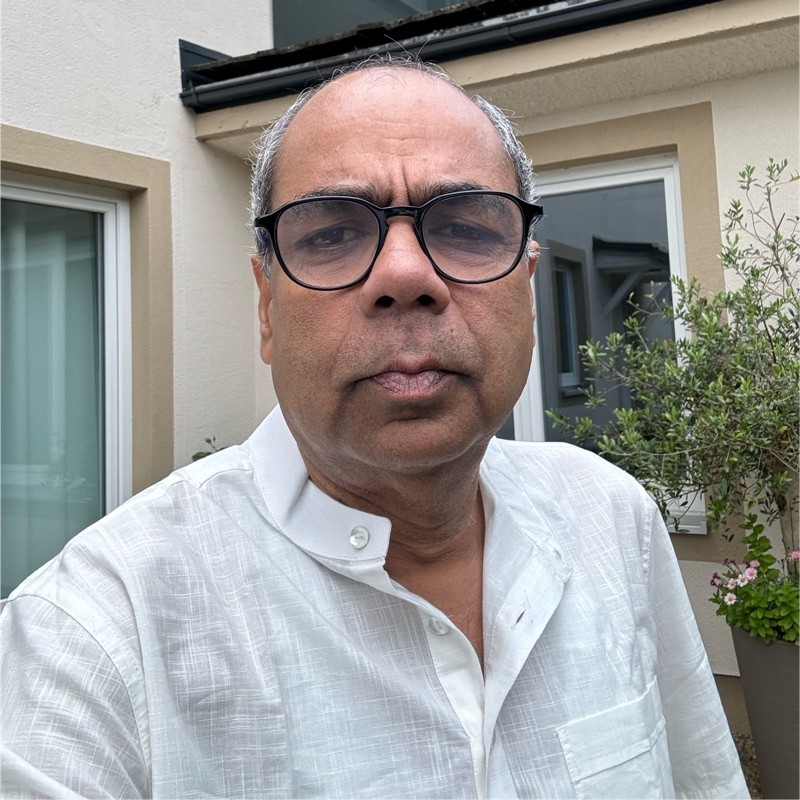
"I believe talent exists everywhere. What’s needed is an environment, opportunities, and access to services."
Dr. Tapan Gope, Deputy Project Director, GIZ India
One standout example was Savitri Kastab, the first girl from Bastar to crack IIT-JEE, whose success is a testament to the untapped potential in these regions when given the right support.
Tapan emphasizes the importance of integrating vocational training and practical learning into education systems, especially for girls. With the introduction of the Dual Vocational Education Training (DVET) model, he advocates for a balanced approach that combines academic learning with skill development. This holistic education model equips students with life skills and industry knowledge, preparing them for the workforce. Tapan believes that expanding this model and integrating industries with educational curricula will better equip the next generation for global standards.
Padma’s Insight on Social Norms and Girls’ Health:
Padma Buggineni, Core Team Member, Aspirational Bharat Collaborative began the discussion by addressing the profound impact social norms have on girls’ health choices. She highlighted how these norms restrict access to essential resources like healthcare and education, ultimately hindering the well-being of young girls. Drawing attention to alarming statistics, she shared that 61% to 69% of children between six months to five years in India suffer from anemia, which negatively affects their cognitive and motor development.
Padma also emphasized how intra-household food distribution often leads to girls eating less, contributing to both physical and mental health issues. She argued that such harmful practices stem from deeply rooted gender biases within families and communities.
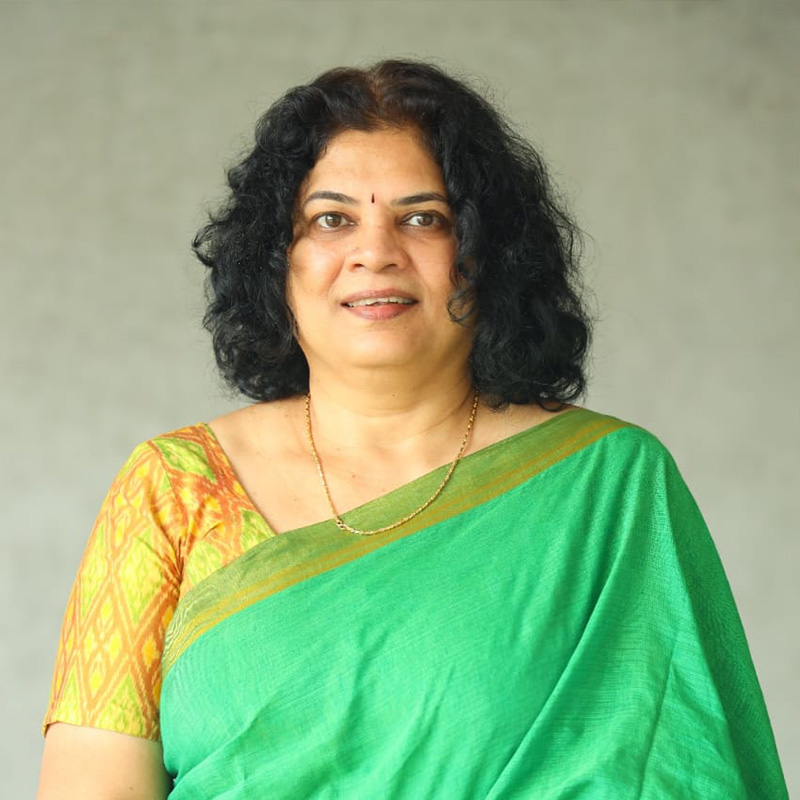
"Most of the time, we don't tell girls to speak. I would say, girls, rise your voices! Make sure that whatever you say is heard by those who are listening, and be firm and authentic in your stance."
Padma Buggineni, Core Team Member, Aspirational Bharat Colloborative
Neelima’s Call for Progressive Boys and Ecosystem Change:
Neelima Pandey, Lead, School of Gender and Inclusion, Piramal Foundation, shared her personal journey and the importance of creating a progressive ecosystem where both girls and boys are encouraged to break free from traditional gender roles. She underscored the significance of working with boys, noting that when boys are sensitized to gender equality, their behavior changes significantly. Neelima shared heartwarming examples from various programs, where boys and girls participated in shared activities that promoted empathy and understanding. One memorable instance involved boys realizing their sisters had limited opportunities to play and, as a result, advocating for safe spaces for girls. This collective shift in attitude, she said, is crucial for long-term change in society.
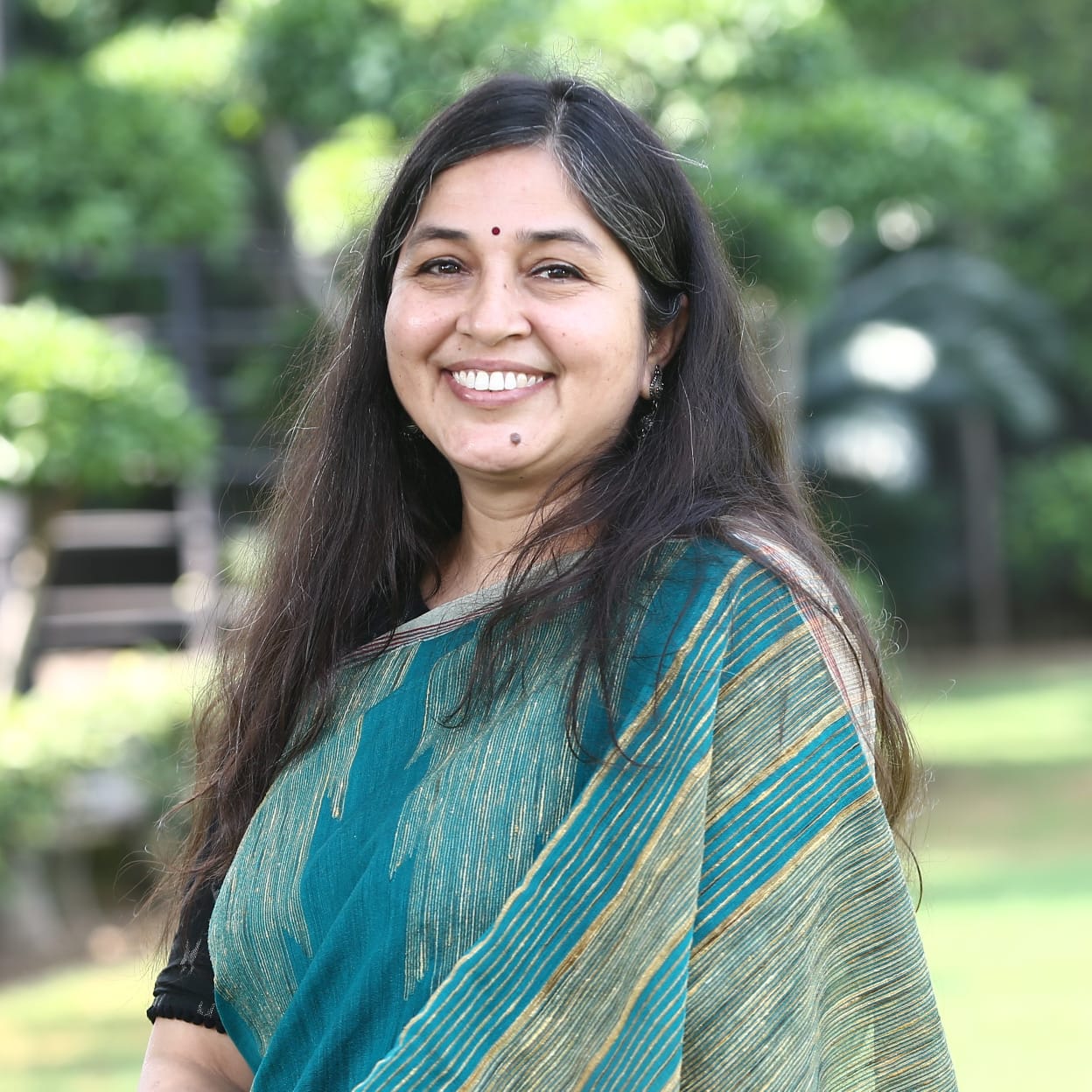
"Without changing a girl's ecosystem—her safety, upbringing, and the people around her—we will keep fighting a one-sided battle. My only appeal is that we send so many girls, so many women onto the streets of India, that no street remains empty, no playground remains quiet."
Neelima Pandey, Lead, School of Gender and Inclusion, Piramal Foundation
Nayana and Neelima’s Advocacy for Parental Involvement:
Nayana and Neelima brought their unique perspective, while sharing about the stressing the role of parents in nurturing children’s dreams and aspirations. Nayana shared a touching example of a program that encouraged parents to reflect on their own unfulfilled childhood dreams and how they could ensure their children, especially daughters, did not face similar barriers. By fostering open conversations about their own aspirations, parents were motivated to support their children’s goals. Nayana argued that this approach could bridge generational gaps and create a positive, supportive environment for children to thrive.
Tapan’s Discussion on Government Initiatives:
Tapan provided a comprehensive overview of the various government initiatives aimed at supporting girls’ education and empowerment. He highlighted programs focused on skill development for adolescents, as well as scholarships and opportunities provided by both central and state governments. However, he pointed out a significant challenge: lack of awareness about these initiatives, particularly in rural and remote areas. He stressed the need for better outreach to ensure that all girls benefit from these schemes.
Padma and Nayana’s perspectives on importance of Early Education on Sexual and Reproductive Health:
Both Padma and Nayana agreed that early education on sexual and reproductive health is crucial for empowering children. Padma suggested starting discussions on body changes and gender equity during the transition from childhood to adolescence, which would naturally lead into more detailed conversations about sexual health. Nayana supported this idea, referencing global statistics that show the benefits of early sex education. She pointed out that in countries like Netherlands, where sex education begins at the age of 3, adolescent pregnancy rates are significantly lower than in countries like the United States, where such education is often not provided.
Conclusion:
The webinar underscored the importance of a holistic approach to gender equality and the approach that Manmohan aptly emphasised, lies in unity. By coming together, we can create a caravan of progress, where no individual is held back from achieving her dreams. It requires collaborative efforts of families, communities, and government initiatives. These dreams, shared by many, are not just stories—they are a testament to humanity, to the emotions and struggles that shape us all. Let us not divide ourselves; instead, let us unite for a brighter, more progressive future.
As we move forward, let’s turn our commitment into action.
Take the pledge to support SDG 4 and SDG 5—ensuring quality education for girls and achieving gender equality. Join us in breaking barriers and building a world where every girl can thrive. #TakeThePledge
Watch the full webinar on YouTube to explore how we can build a stronger agency for girls in Viksit Bharat: Watch Here.
TAGS
SHARE





